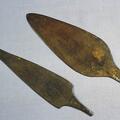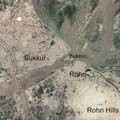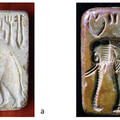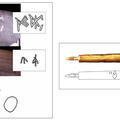Peaceful Harappans? Reviewing the evidence for the absence of warfare in the Indus Civilisation of north-west India and Pakistan (c. 2500-1900 BC)
Whether or not the ancient Indus civilization was peaceful or not has intrigued a number of scholars and led to books like Jane McIntosh's A Peaceful Realm (2001). The apparent lack of weaponry and depictions of warfare, possibly ideas on the supposed egalitarianism of Indus civilization have led to a preponderance of this hypothesis.








